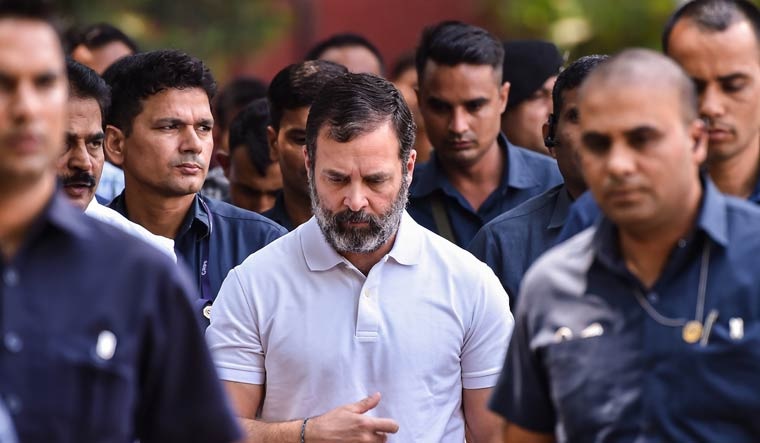Congress leader Rahul Gandhi on Monday moved Bombay High Court, contesting a decision made by a Magistrate court related to a defamation complaint filed against him by a Rashtriya Swayamsevak Sangh (RSS) worker.
The Magistrate court, on June 3, granted Rajesh Kunte, the RSS worker, permission to present documents during his court testimony.
In his complaint before the Bhiwandi Magistrate, Kunte accused Rahul Gandhi of making defamatory statements against the RSS, alleging that the Congress leader held the Hindu outfit “responsible for the assassination of the father of the nation, Mahatma Gandhi”.
Also Read: Big relief for Rahul Gandhi as Supreme Court stays conviction in defamation case
In the course of the proceedings at the Magistrate court, Kunte introduced additional documents that were not originally part of his complaint. These documents were submitted by Kunte during his examination in chief at the Bhiwandi Magistrate court in Thane.
On July 12, 2019, Kunte provided a video copy of a tweet by Rahul Gandhi and documents to support his evidence. Kunte argued that the mentioned video in the complaint was uploaded on Gandhi’s X (formerly known as Twitter) account on August 25, 2016, and thus, communication related to it needed to be entered into the record.
Advocate NV Iyer, representing Gandhi, opposed the submission of these additional documents. Iyer contended that the additional documents aimed to introduce documents that had not been filed by the complainant since 2014.
Also Read: Defamation case: Not guilty of offence, won’t tender apology, says Rahul Gandhi in Supreme Court
“The complainant has failed to specify any ground for filing this document at a belated stage. It is a matter of record that the said documents find no mention in the instant complaint, and no averment whatsoever has been made by the complainant regarding these documents,” Iyer submitted.
Gandhi approached the high court, asserting that Kunte failed to provide any justification for submitting these documents at such a late stage. Gandhi maintained that these documents were not mentioned in the original complaint and were presented after a lapse of nine years. He argued that permitting the production of these documents would be prejudicial to his case.


